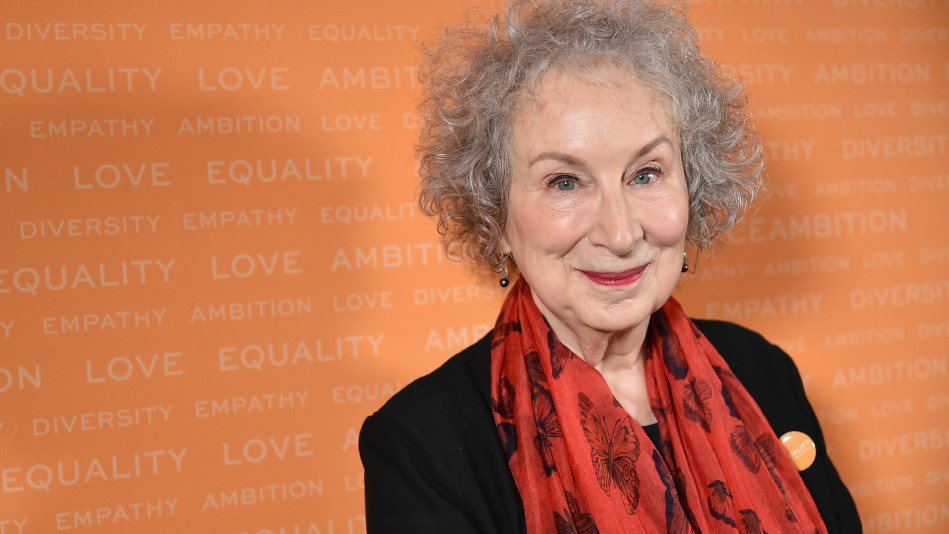Why Margaret Atwood Wrote The Handmaid's Tale Sequel 34 Years Later
"I wanted to explore the beginning of the end of Gilead."

Photo: Mike Coppola/Getty Images
There are few writers who are more relevant, who write timelier novels than Margaret Atwood. For her entire career, she's been breaking ground—which is why her 1985 novel, The Handmaid's Tale, is a phenomenon both on television and in print, and why her publishers kept the themes of her new novel, The Testaments, under lock and key, as if they were guarding state secrets.
So how did Atwood develop her acute powers of seeing into the future—or has she just been paying close attention to what's happening around her from an early age? I sat down with her to talk about her new book, and whether she's a prophet or just a really good student—and whether working on the Hulu series revived her interest in the book she wrote more than three decades ago.
Leigh Haber: When you started out writing sci-fi—or "dystopic fiction," or however you want to categorize it—you were entering a literary universe in which the predecessors had been pretty much all men. Was that at all intimidating to you?
Margaret Atwood: No. I'm not easily intimidated.
LH: And never were?
MA: Certain things do intimidate me. Polar bears are intimidating. I'm not a fan of walruses. They're physically, realistically intimidating; other things are just in your head.
LH: But for a lot of people, what's in their head is as real as a polar bear.
MA: Yeah. People who grew up in small tightly knit communities or went to bad high schools and had negative experiences are probably more easily intimidated. I didn't grow up in a small, tightly-knit community where people are always judging you and have certain ideas about correct female behavior. My high school, from what I know about other high schools, was fairly benign.
LH: One of the many lines I've underlined in The Testaments—which is just brilliant—is: "Mercy was a quality that did not operate in that place." That pretty much sums up Gilead, in the context of both The Handmaid's Tale and The Testaments.
MA: It goes on in totalitarian states because there is no recourse. If the judiciary and the executive branch are the same, you can't take an appeal to another court. There is no other court. Therefore, people get quite high handed. Have you seen the film The Death of Stalin?
LH: No, I haven't.
MA: Stalin was just making lists, and it's played as a kind of comedy, but it shows history sped up a bit and in some cases toned down. So he really did have a list. He really was going to kill all the Jewish doctors; whoever he said was to die, died. That was it.
Read the full story here: Margaret Atwood Explains Why She Wrote The Handmaid's Tale Sequel 34 Years Later



